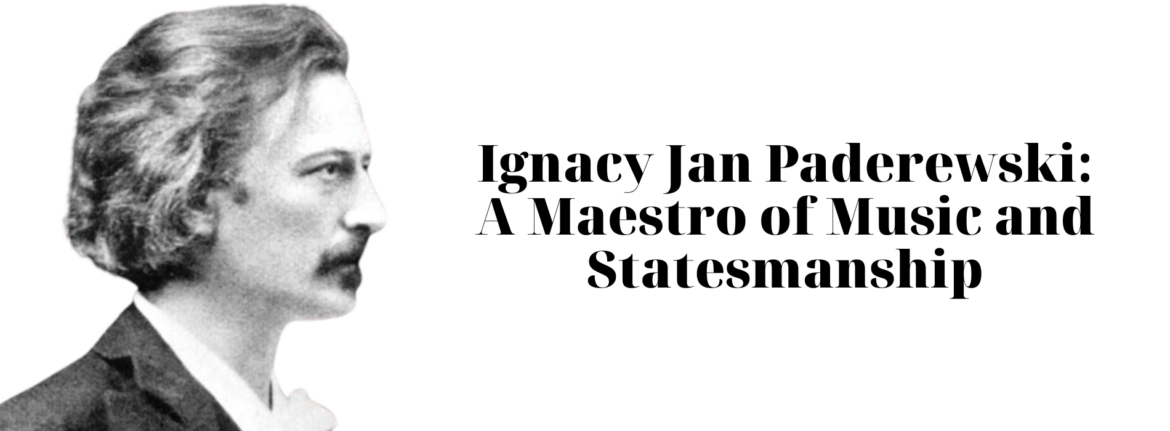Ignacy Jan Paderewski, a name synonymous with musical brilliance and political leadership, left an indelible mark on the world stage as both a virtuoso pianist and a statesman. His multifaceted career spanned the realms of music, diplomacy, and public service, earning him admiration and accolades worldwide. Let’s delve into the life and legacy of this remarkable figure.
Early Life and Musical Career:
Born on November 6, 1860, in the small town of Kuryłówka, in present-day Ukraine, Paderewski displayed musical talent from a young age. He received his early musical education in Poland and later studied at the Warsaw Conservatory, where he honed his skills as a pianist and composer.
Paderewski’s exceptional talent and charismatic stage presence soon catapulted him to international fame. His electrifying performances captivated audiences across Europe and the United States, earning him acclaim as one of the greatest pianists of his time. With his distinctive blend of technical prowess and emotional depth, Paderewski became a cultural icon, revered for his interpretations of Chopin and other classical masters.
Advocate for Polish Independence:
Beyond the concert hall, Paderewski was deeply committed to the cause of Polish independence and national identity. During World War I, he emerged as a leading voice for the Polish diaspora, advocating for the creation of an independent Polish state.
In 1917, Paderewski joined forces with Polish political leaders in exile to form the Polish National Committee, which aimed to secure international support for Poland’s independence. His impassioned speeches and diplomatic efforts helped garner recognition for the Polish cause among Allied powers, ultimately leading to the restoration of Poland’s sovereignty in 1918.
Statesmanship and Public Service:
Following Poland’s independence, Paderewski transitioned from the concert stage to the political arena, serving as Poland’s Prime Minister and Minister of Foreign Affairs in 1919. His tenure was marked by efforts to rebuild the war-torn nation, establish democratic institutions, and promote Poland’s interests on the world stage.
As Prime Minister, Paderewski played a key role in negotiating the Treaty of Versailles and securing Poland’s borders in the aftermath of World War I. He also championed social reforms, including land reform and workers’ rights, aimed at improving the lives of ordinary citizens.
Despite facing numerous challenges and political controversies during his time in office, Paderewski remained steadfast in his commitment to Poland’s ideals of freedom, democracy, and cultural heritage.
Legacy and Cultural Impact:
Paderewski’s legacy extends far beyond his accomplishments as a musician and statesman. He is remembered as a symbol of Polish resilience and patriotism, whose unwavering dedication to his homeland inspired generations of Poles to strive for freedom and independence.
In addition to his contributions to Polish politics, Paderewski left a lasting impact on the world of music through his compositions and performances. His compositions, including the celebrated „Minuet in G Major,” continue to be performed and cherished by musicians and audiences around the globe.
Paderewski’s remarkable life and career serve as a testament to the power of art and diplomacy to effect positive change in the world. His enduring legacy serves as an inspiration to all who strive to make a difference, both on and off the stage
